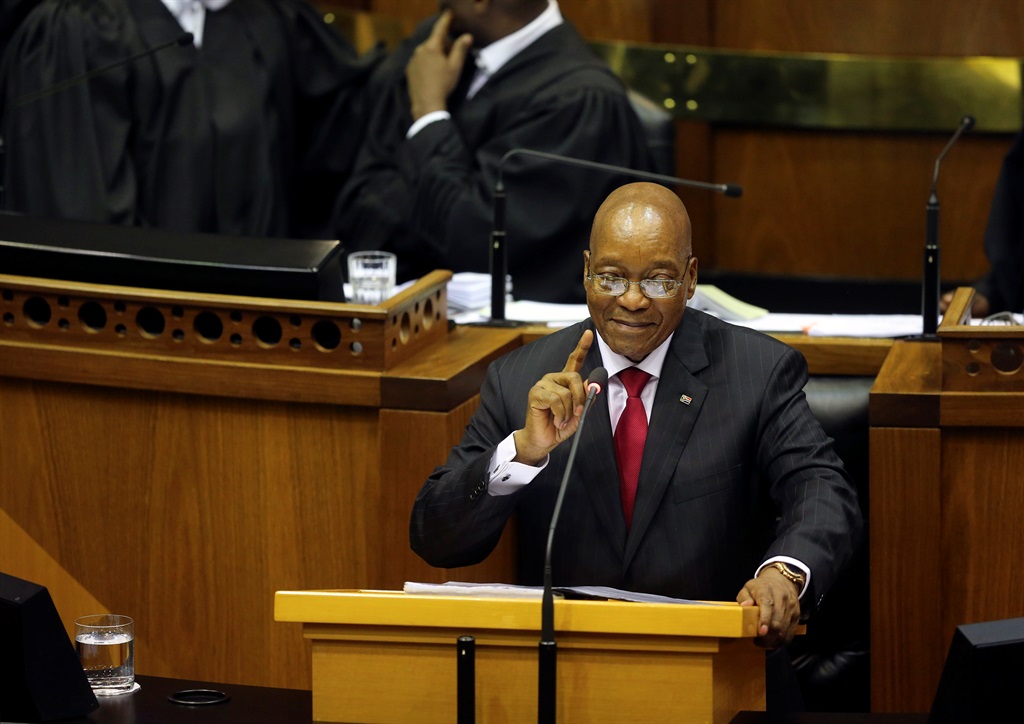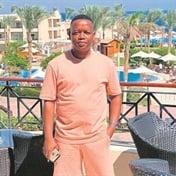
MPs took over from where they left off last Thursday as tempers flared and insults were thrown during the debate of President Jacob Zuma’s state of the nation address, which was delivered last week.
This was despite a plea from Minister in the Presidency Jeff Radebe who opened the debate by calling for MPs to restore the dignity and the decorum of the house.
“I must declare upfront that the mayhem that transpired in this house last Thursday is highly regrettable,” he said. “Parliament is an institution established with the core values of accountability, teamwork, professionalism and integrity among others, and we must always uphold these noble values,” said Radebe.
He also spoke out against the embarrassing drowning-out of an 11-year-old imbongi (praise singer) by Economic Freedom Fighter MPs, who were heckling Zuma, and ANC MPs, who were chanting “ANC” in response.
“A young boy who had the glorious opportunity of ushering in our head of state with a poetic rendition, was drowned out by heckling and jeering adults who are supposed to be leaders of society,” said Radebe. He added that the president had to wait for more than an hour to “articulate his plans for our country” because there were constant interruptions followed by jeering, heckling and even profanities spewed inside the esteemed house with reckless abandon.
“We must find our moral compass and remember that we are all here because we are mandated by the voting public.
“The time has come for all of us to restore the dignity and the decorum of this prestigious house. Our Parliament must return to its former glory as a dignified space for honourable members to have candid debates in the interests of creating a better life for all South Africans,” said Radebe.
But ANC MP Bongani Mkongi took the debate to the gutter when he referred to Democratic Alliance leader Mmusi Maimane as “a white man in black skin”.
“The youth of this country should refuse to allow a white man in the black skin to stand here today and demonise them. They must refuse,” he said.
When called on to withdraw the statement, Mkhongi simply repeated it in isiXhosa.
When the DA complained, on a point of order, Speaker Baleka Mbete promised to study the Hansard – Parliament’s official record.
Transformation
Meanwhile, on policy, ANC MPs restated the party’s new narrative on radical socioeconomic transformation.
Radebe said it was in view of the slow pace of transformation and lack of inclusivity in the economy that Zuma introduced the radical socioeconomic transformation.
“The emphasis here is on fundamental change in the structure, systems, institutions and patterns of ownership, management and control of the economy in favour of all South Africans, especially the disenfranchised black people,” he said.
“I must assure you, honourable members, that radical socioeconomic transformation is not just a political rhetoric. It is a more rigorous step in our continuous journey towards building a better and more prosperous South Africa.
“The radical socioeconomic transformation builds on the previous interventions that were aimed at transforming the South African economy. All these interventions are in line with the assertion of the Freedom Charter, adopted by the collective mass of our people under the auspices of the Congress of the People, in Kliptown in 1955,” said Radebe.
He said the government was now building on the prescripts of the Freedom Charter by implementing the radical socioeconomic transformation as an intervention strategy to expedite transformation in our society.
Radebe said South Africa was a country with a mixed economic system comprising the state, private sector and social capital. He said more than 75% of South Africa’s economy was in the hands of the private sector.
“This places the private sector as a strategic partner in our efforts to find solutions to the economic challenges that confront us as a nation. We continue to work in close collaboration with the private sector through the CEO Initiative and other relevant structures as alluded to by the president.
“We also have a historical backlog of a skewed economic system characterised by exploitation and imbalanced distribution of wealth along racial lines.
“We are now well into the third decade of the democratic dispensation in South Africa, and we cannot continue to lament the legacy of our divided past. Radical socioeconomic transformation is a vehicle through which we accelerate the process of transferring economic power to the black majority,” he said.
Radebe said at the core of the transformation programme was the creation of jobs and accelerating shared and inclusive economic growth.
He said the state would play a major role in the economy to drive the transformation agenda.
“The government would utilise the strategic levers that are available at its disposal. This includes legislation, regulations, licensing, budget and procurement as well as Broad-based Black Economic Empowerment charters to drive transformation,” he said.
ANC MP Elsie Coleman expanded on the ANC’s definition of radical socioeconomic transformation, saying it should ultimately change the macro picture in the economy, with black managers, professionals, technicians, skilled workers, and owners of enterprises, all working together to build the 21st century economy, “not 5% shareholding in someone else’s company, waiting for dividend payments, but owners and drivers of our own destiny, creating wealth and decent jobs”.
“This change must be done with the urgency that comes in a country with almost a quarter century of democracy that still has enormous economic transformation backlogs,” said Coleman. She added that what made the proposal radical was both its content and the pace of change.
Coleman said what made the idea transformational was that it did not simply seek to replace white with black but to create opportunities for youth, for cooperatives and rural enterprises, to empower workers and the poor, to beneficiate the mineral wealth “so that we on our continent can add value to our natural resources”.
“We are not seeking reverse apartheid but a fair representation of wealth ownership and control of the South African economy,” said Coleman.
Attacks on ANC
The opposition parties were not hearing any of it.
The EFF stayed away from the debate because it did not recognise Zuma, whom it believed was an illegitimate president.
DA leader Mmusi Maimane launched yet another attack on Zuma and the ANC and this time was more brutal, referring to the ANC government as murderous.
“Two weeks ago, a story broke in our news of people torn from their lives and their families right here in a democratic South Africa.
“We heard how thousands of mentally ill patients were carted off to unlicensed [non-governmental organisations] without telling them or their families where they were going,” he said.
“We heard how 94 of these patients tragically died of starvation, dehydration, diarrhoea, pneumonia and seizures. This ANC government – under this president – did that.
“From the Marikana 34 to the Esidimeni 94, this government has turned against the people of this country. This is a murderous government,” said Maimane, to blank stares from the ANC’s front benches.
Maimane also criticised Mbete’s decision to not allow a moment of silence proposed by the DA on Thursday evening to pay tribute to the 94 psychiatric patients who died. The moment of silence was observed at the start of yesterday’s proceedings.
Maimane claimed the ANC had stopped caring about ordinary South Africans, and said it had turned from liberator of the people to the enemy of the people.
Turning to Thursday night’s event, Maimane spoke about Zuma’s laughter when EFF MPs were violently removed from the house.
“South Africa will never forget what happened on Thursday. And we will never forget the reaction of the man at the centre of it all ... We will never forget how he laughed”.
A more scathing criticism of the ANC government came from an unlikely fellow – Inkatha Freedom Party leader Mangosuthu Buthelezi, who said people were desperate for something real and not empty promises.
Buthelezi said the government’s Growth, Employment and Redistribution (Gear) plan was abandoned by the ANC. The Accelerated and Shared Growth Initiative for South Africa wasn’t flawed, but it simply lacked the sustained and strategic leadership needed to implement it.
He said the same would probably happened to the National Development Plan.
“The difference between these economic approaches and the programme of radical economic transformation is the complete reliance on rearranging the little that exists, moving it from one group to another.
“Evidently, white monopoly capital is now the only scapegoat for failed leadership on economic policy,” said Buthelezi.
The debate of Zuma’s annual address continues today .
 |
| ||||||||||||
| |||||||||||||




 Publications
Publications
 Partners
Partners








